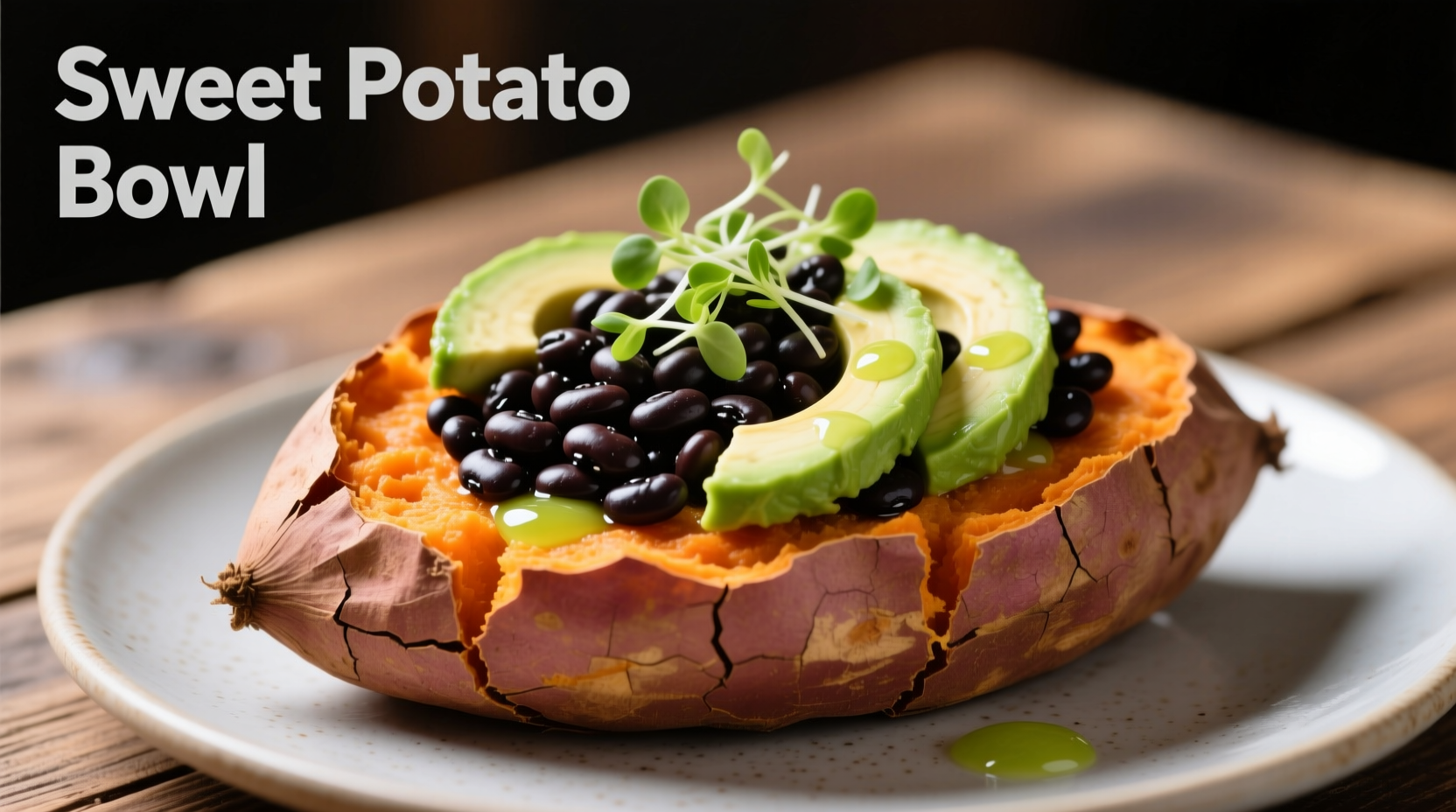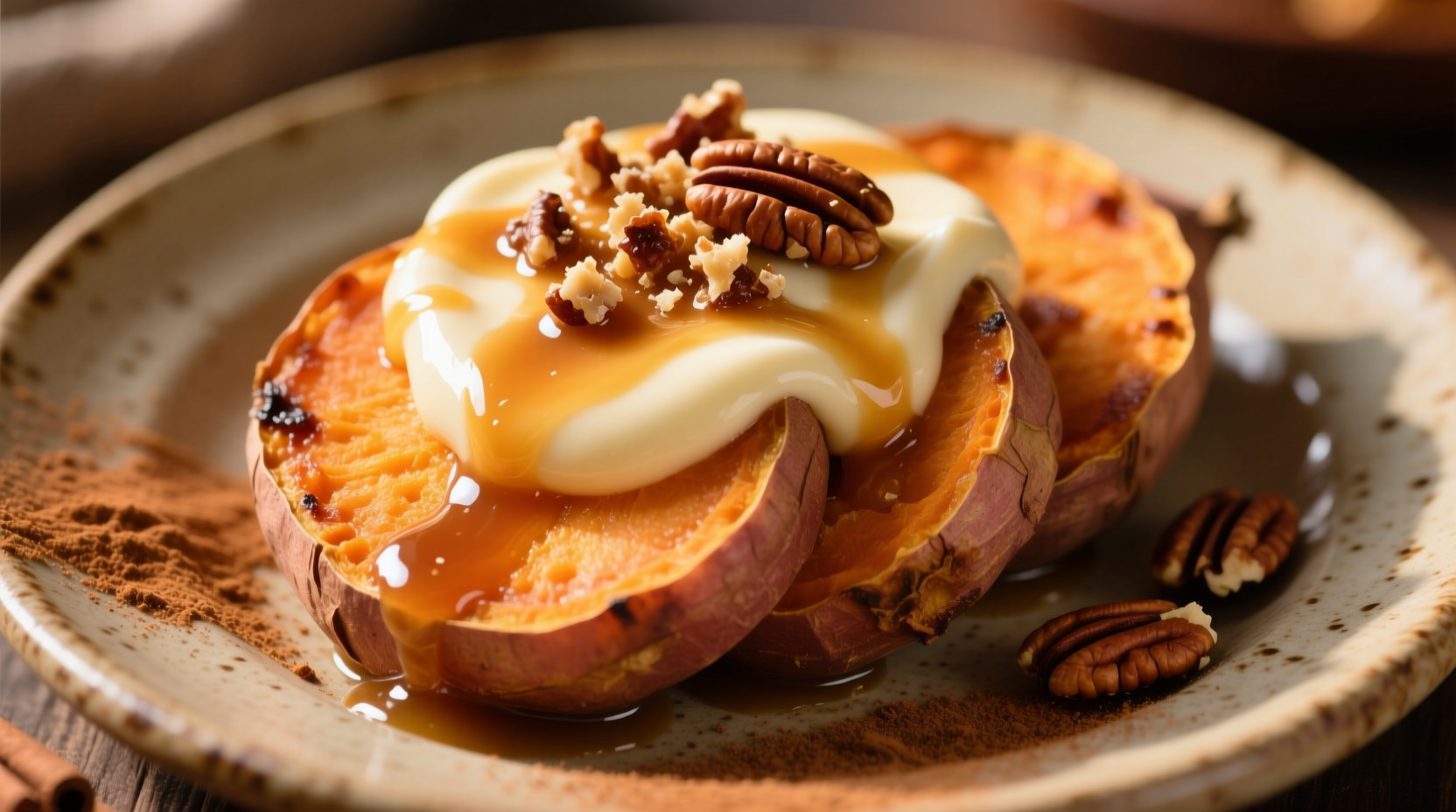Why Certain Toppings Work Perfectly with Sweet Potatoes
Sweet potatoes offer a unique canvas for flavor exploration thanks to their complex carbohydrate structure and natural sugars. When baked or roasted, their starches convert to maltose, creating that signature caramelized sweetness. Understanding this chemical transformation helps explain why certain toppings create culinary harmony while others clash.
| Topping Category | Top 3 Combinations | Flavor Chemistry Benefit |
|---|---|---|
| Savory | Black beans + cumin + lime | Acidity cuts sweetness while earthy spices complement natural notes |
| Savory | Roasted garlic + fresh sage + olive oil | Umami compounds enhance depth without competing with sweetness |
| Savory | Smoked paprika + avocado + pumpkin seeds | Fat content balances texture while smoke notes create complexity |
| Sweet | Maple syrup + toasted pecans + sea salt | Maillard reaction compounds in nuts mirror potato's caramelization |
| Sweet | Cinnamon + Greek yogurt + honey | Probiotics in yogurt create subtle tang that balances sweetness |
| Sweet | Brown sugar + coconut cream + vanilla | Fat-soluble compounds in coconut enhance mouthfeel and flavor release |
Savory Topping Strategies for Maximum Flavor Impact
Professional chefs leverage specific techniques to make savory toppings shine on sweet potatoes. The key principle is balancing sweet, salty, acidic, and umami elements. According to culinary research from the Culinary Institute of America, sweet potatoes reach optimal flavor harmony when paired with ingredients containing glutamic acid (umami) and malic acid (tartness).
For perfect savory results, try these chef-approved methods:
- Layer flavors strategically: Start with a base of olive oil or avocado oil (high smoke point preserves nutrients), add spices directly to the potato before baking, then finish with fresh herbs and proteins after cooking
- Temperature contrast: Serve warm sweet potato with cool toppings like cilantro-lime crema to create textural interest
- Texture variation: Combine creamy elements (like black bean puree) with crunchy components (such as toasted pepitas) for multidimensional eating experience

Sweet Topping Combinations That Enhance Rather Than Overpower
Creating balanced sweet toppings requires understanding sweet potato's natural sugar profile. Unlike regular potatoes, sweet potatoes contain significant amounts of beta-carotene which interacts with added sugars during cooking. The USDA FoodData Central database shows that a medium baked sweet potato (130g) contains approximately 27g of carbohydrates, including 10g of natural sugars.
When selecting sweet toppings, consider these evidence-based guidelines:
- Use natural sweeteners sparingly: A tablespoon of pure maple syrup (12g sugar) complements rather than competes with the potato's natural sweetness
- Include fat for flavor release: Healthy fats like coconut cream help dissolve and distribute flavor compounds more effectively
- Add salt to enhance perception: Just 1/8 teaspoon of flaky sea salt can make sweet flavors more pronounced through contrast
Nutritional Considerations for Health-Conscious Toppings
Sweet potatoes rank among the top vegetable sources of beta-carotene, providing over 400% of the daily value per serving. When choosing toppings, consider how they affect the overall nutritional profile. Research from the American Journal of Clinical Nutrition demonstrates that pairing sweet potatoes with healthy fats increases absorption of fat-soluble vitamins by up to 60%.
For maximum health benefits while maintaining great flavor:
- Combine with monounsaturated fats like avocado or olive oil
- Add protein sources such as black beans or Greek yogurt to balance blood sugar response
- Include fiber-rich toppings like chia seeds or flax to enhance satiety
- Avoid refined sugars that cause rapid blood glucose spikes
Pro Tips for Perfect Sweet Potato Preparation
The foundation of great topping application starts with proper sweet potato preparation. Professional chefs recommend these evidence-based techniques:
- Choose the right variety: Orange-fleshed varieties (like Beauregard) work best for sweet toppings, while white or purple varieties handle savory preparations better
- Don't skip the poke step: Piercing the skin 6-8 times prevents bursting and allows steam to escape during baking
- Rest before topping: Let baked sweet potatoes rest for 5 minutes to allow starches to set, creating better texture for toppings
- Temperature matters: Apply creamy toppings to warm (not hot) potatoes to prevent separation











 浙公网安备
33010002000092号
浙公网安备
33010002000092号 浙B2-20120091-4
浙B2-20120091-4